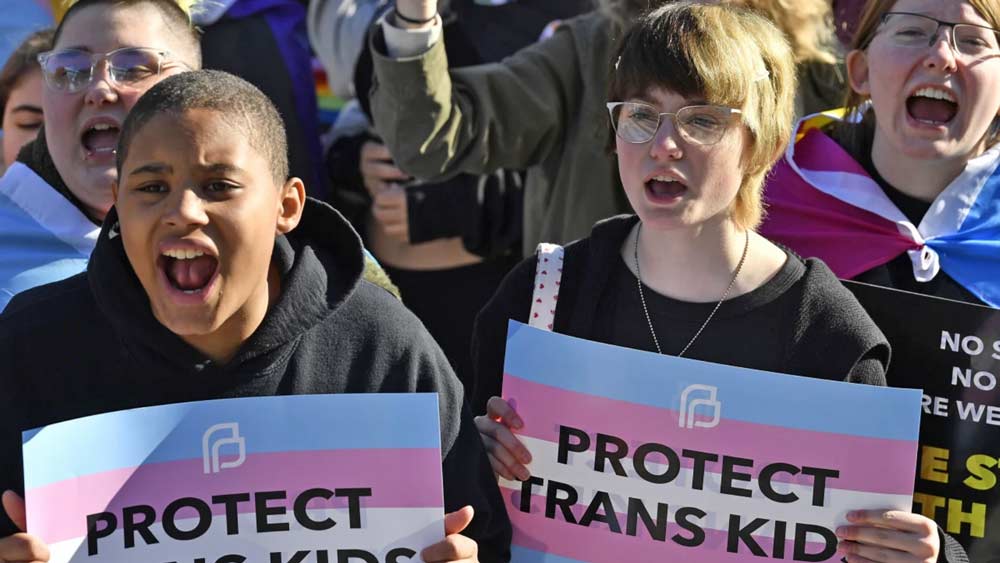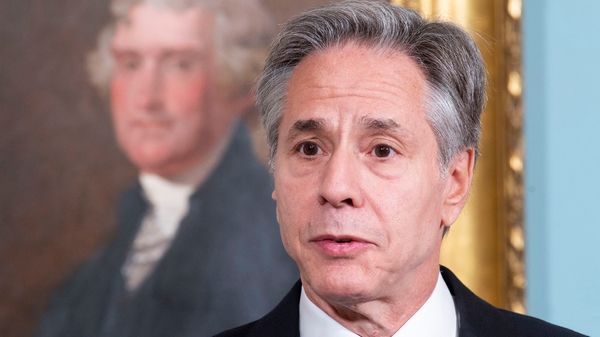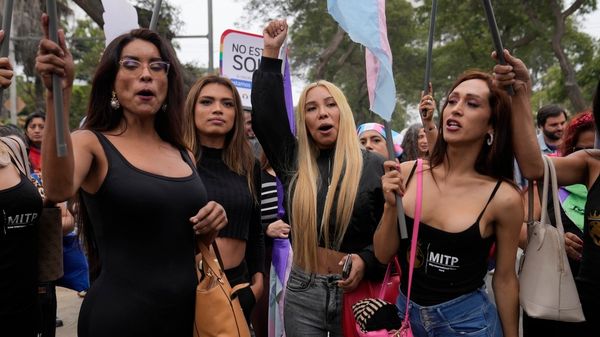March 13, 2012
NH Legislator: Return to Civil Unions
Jason St. Amand READ TIME: 4 MIN.
The sponsor of a bill to repeal New Hampshire's gay marriage law proposed Tuesday to replace it with the civil unions law enacted in 2007 and putting a nonbinding question on the ballot asking voters if that is what they want.
State Rep. David Bates, a Windham Republican, told The Associated Press his proposal would repeal gay marriage effective March 31, 2013. He said if voters say they want to keep civil unions for homosexuals, gay marriage would be repealed. He said if voters object to repealing gay marriage, lawmakers would have time to stop the repeal from taking effect.
The civil unions law enacted in 2007 was considered by gay marriage supporters to be marriage in all but name. Bates' proposal is intended to return to that law by giving same-sex couples the contractual protections of marriage.
"From my perspective, this is not intended to be a substitute or mimic of marriage," he said.
Bates said he will offer the proposal as an amendment to his bill when it comes to the House floor for a vote next week.
Bates said his amendment will satisfy some critics who said his original proposal failed to ensure the almost 1,900 existing same-sex marriages would not be affected if the law is repealed. The amendment specifically states their marriages will not be affected.
It is Bates' second amendment to the bill that is being heavily lobbied by both sides. Both sides also are promising to raise money to support lawmakers sympathetic to their cause in the fall elections. The National Organization for Marriage has pledged to spend $250,000 to help lawmakers who support repealing the law. On the other side, the New Hampshire Republicans of Freedom and Equality PAC is raising money to back Republicans who vote to retain the law.
New Hampshire polls show a majority oppose repealing the law. Bates disputes their accuracy.
Democratic Gov. John Lynch has repeatedly said he will veto attempts by the Republican-controlled Legislature to repeal the law, which he signed in 2009 and took effect in 2010. New Hampshire enacted civil unions in 2007 for same-sex couples and two years later replaced that law with the marriage law. Lynch also signed the civil unions law which was in effect in 2008 and 2009.
Repeal opponents, including some Republican lawmakers, believe the vote to pass the bill in the House will be close. They believe if it passes and is vetoed, they have the votes to sustain a veto. It takes a two-thirds vote of those present and voting to override a veto.
On the other hand, Bates said he believes the law will be repealed, especially with his newest proposal.
"You have to deal with the realities of trying to reach consensus," he told The AP about the changes he made.
He said the "million dollar question is whether (the bill) will get 67 percent" -- the two-thirds needed in each chamber to override a Lynch veto.
Republican leaders have until March 29 to bring the bill to a vote in the House to avoid needing a supermajority to suspend rules. If the House passes the repeal bill, it would go to the Senate. Bates said a vote would be scheduled next week.
New Hampshire's House Judiciary Committee voted last fall to recommend replacing the law legalizing same-sex marriage with civil unions for any unmarried adults, including relatives. The committee recommended killing a bill that simply repealed the law.
Bates' first amendment would not have enacted the same civil unions law that was in effect before gays were allowed to marry. That law granted gays all the rights and responsibilities of marriage except in name. Bates' first proposed civil unions law would have been open to any two adults and would have let anyone refuse to recognize the unions. It also would have allowed anyone to discriminate against such couples in employment, housing and public accommodations based on religious or moral beliefs.
Bates dropped those provisions from his latest amendment.
Supporters said the two proposed repeal bills would not apply to gay marriages that have already occurred, but would stop new ones. Since 2010, 1,899 New Hampshire gay couples have married so far under the current law.
But opponents said Bates' first amendment had conflicting provisions that appear to bar the courts from recognizing same-sex relationships as valid, while declaring gay marriages in effect before the repeal took effect to remain valid.
Bates' latest amendment clarified his intent was to recognize their validity.
Others questioned whether allowing civil unions between relatives would amount to condoning incest. Supporters said it did not do so.
Bates said he still believes all adults should be allowed to enter into a civil union, but his bill restricts the unions to same-sex couples.
Though rare, New Hampshire has put nonbinding questions on the ballot in the past, Bates said.
In 2010, Bates was behind a push to get towns to consider a similar nonbinding question at town meetings. The results were mixed with Bates arguing more towns approved it than disapproved it, but many towns tabled the resolution making the final outcome hard to judge.
Bates told The AP he accepts there is no will to repeal gay marriage without replacing it with civil unions, but he still wants to hear what voters have to say.
"I don't think what we have in place now is what the people want," he said.
Same-sex marriage is legal in New York, Connecticut, Iowa, Massachusetts, New Hampshire, Vermont, Maryland, Washington and the District of Columbia. New Jersey lawmakers recently passed a gay marriage bill, but the governor vetoed it. An override vote could come as late as January 2014.
Since 1998, 31 states have had ballot measures related to same-sex marriage and opponents have prevailed in every state.
Last month, a federal appeals court declared California's same-sex marriage ban to be unconstitutional. The ruling could mean the bitterly contested, voter-approved law will be appealed to the U.S. Supreme Court.





